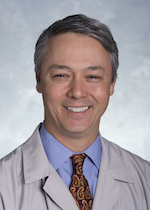
From March 12 to 15, Long Beach, Calif., will become a focal point of fun, learning, collaboration and hands-on experience as surgeons from across North America and around the world gather for the annual meeting of the Society of American Gastrointestinal and Endoscopic Surgeons (SAGES). Like its predecessors, the meeting boasts a virtually limitless array of offerings for attendees, this year unified under the umbrella theme of “Unleashing Our Potential,” which is meant to reflect one of the society’s core values.
“Our president, Dr. Christopher Schlachta, really wanted this meeting to be about supporting the surgeon, promoting the well-being of the surgeon, and equipping the surgeon with the most up-to-date tools available,” said program Co-chair Michael Ujiki, MD, the Louis Biegler Chair in Surgery and vice chair of clinical affairs at Endeavor Health, in Evanston, Ill. “The idea is to help surgeons take the best care of their patients.”
Program Co-chair Anne Lidor, MD, MPH, the chief of minimally invasive and bariatric surgery at the University of Wisconsin School of Medicine and Public Health, in Madison, agreed. “Our goal is to have surgeons be able to practice more efficiently, effectively, and in a way that doesn't make them feel burned out, using tools that allow them to work smarter, not harder.”
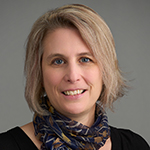
As always, the meeting is anchored by a clinical program that covers a broad range of subject matter. And while foregut, bariatric, colorectal and hernia surgeries are the four pillars of these offerings, Drs. Lidor and Ujiki have tried to tailor them to attendees’ needs by listening to comments made after previous meetings.
“For example, all of our big sessions have at least one talk that's designated to comparing robotic surgery and laparoscopic surgery,” Dr. Ujiki noted. “When it came to robotics and laparoscopy, we wanted to be very impartial. When should robotics be appropriately used? What are the data behind it? In the end, we want to look at the pros and cons of all approaches to surgery.”
Hands-on Learning
The meeting will also include sessions on operating room ergonomics, the incorporation of new technology such as artificial intelligence into practice, and emerging techniques. Hands-on courses will focus on minimally invasive techniques like endoscopic suturing, as well as noninvasive bariatric procedures. Attendees can also expect sessions on common bile duct exploration, the use of impedance planimetry (endoFLIP) in the OR, and intracorporeal anastomosis. As always, video-driven education will also be a focus of this year’s meeting.
One thing the organizers tried to do differently this year was to incorporate a lifestyle/practice/advocacy component to each of the meeting’s sessions, rather than setting these elements apart. As Dr. Ujiki explained, the reason for this comes down to practice specialty.
“Rather than having one session on advocacy, where you might talk about bariatrics in one talk, hernia in another and foregut in another, we thought it would be better for a foregut session, for example, to include an advocacy talk specifically geared toward foregut,” he told General Surgery News.
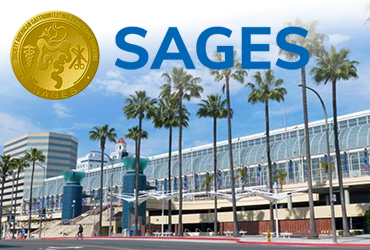
“We feel like we’ve covered almost every aspect of practice,” Dr. Lidor added. “For example, how do you bill appropriately for new abdominal wall procedures? With all the new endoscopic approaches that are coming out, how do you make sure you can get them covered so you can offer them to your patients?” In addition, one of the benchmarks of this year’s meeting is a special symposium titled “Things I Wish I Knew When I Started My Practice,” which will offer a plethora of tips, tricks and insights from seasoned professionals to those who are newly embarking on their professional journeys.
One part of the meeting that both co-chairs felt particularly proud of was having actual patients lead and present sessions, which they believe is an important step toward patient engagement.
“If you think about it, getting the patient's perspective when we offer certain procedures—or at least taking their perspective into account when we talk about how we perform surgery—is so important,” Ujiki noted.
Highlighting the Community
Abstracts are another cornerstone of the meeting’s clinical offering, and SAGES 2025 boasts a record number of submissions, with a total nearing 1,600. These abstracts cover the gamut of gastrointestinal and endoscopic surgical practice, from artificial intelligence to global approaches to surgery. Yet the meeting’s international flavor does not end there, as Drs. Lidor and Ujiki have made a concerted effort to involve a broad range of surgeons from outside North America in the program. This includes presenting, moderating and chairing sessions, and even extends to the meeting’s extensive social schedule where attendees can enjoy a matcha-tasting session led by Dr. Yusuke Watanabe from Japan.
Other social offerings include Family Feud, a host of beach-themed outdoor activities (did someone say goat yoga?), morning runs and sake tasting. An LGBTQ+ social hour-one of the best-attended sessions from the 2024 annual meeting-will also be returning this year.
“There are all sorts of other things to get everyone together and meet outside of the clinical world,” Dr. Lidor said. Camp SAGES Daycare will also be available for parents traveling with children aged 6 months through 17 years.
Yet for Drs. Lidor and Ujiki, perhaps the most exciting part about creating this year’s meeting program is how the experience has opened their eyes to just how active, supportive and involved the SAGES community is.
“I was surprised at how many people submitted suggestions for sessions and wanted to be involved in the meeting itself,” Dr. Lidor added. “And I think that says something, in and of itself, about SAGES.”
“When hard work is fun, it doesn't seem like hard work, and this has been a lot of fun,” Dr. Ujiki added. “I think it's fun to see how a meeting is put together, but being able to hear what people want from the meeting has also been an education in itself.
“I think it shows us that SAGES is engaging its members [and] people in the right way,” he continued. “People are excited about the meeting.”
As Dr. Lidor concluded, if there’s one problem with the meeting, it’s the fact that there are too many great things happening concurrently, forcing attendees to choose between various options.
“But that's a good problem to have,” she said.
SAGES is closely monitoring the fire activity in the Los Angeles area and will inform members and attendees immediately should conditions threaten the Long Beach area.


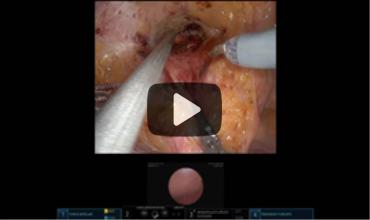
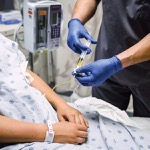
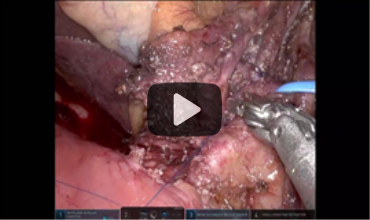
Please log in to post a comment